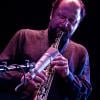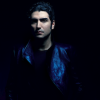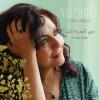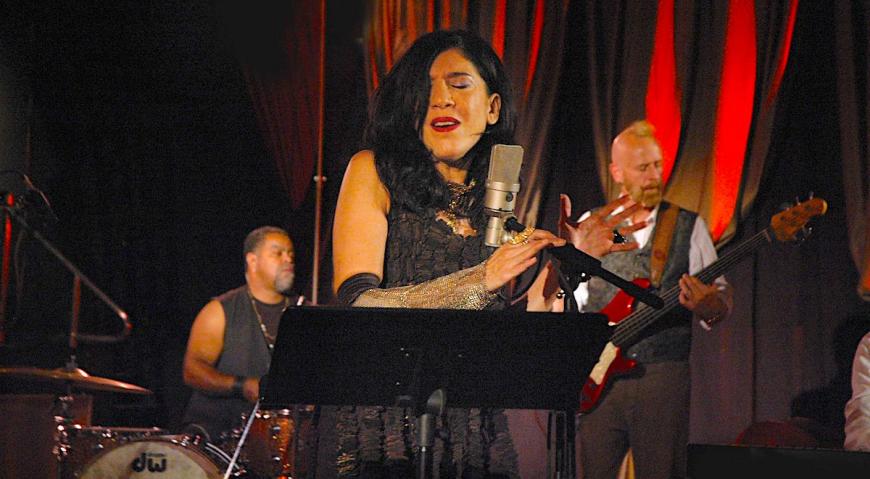
Iranian-born composer, vocalist, performance artist, and activist, Los Angeles-based Sussan Deyhim is known for creating a singular vocal language, one that is permeated with a sense of ritual and the unknown. In other words, Deyhim is a consummate artist: At 13, she was part of the national ballet company in Iran, studying with master folk musicians and dancers; in 1976, she joined Maurice Béjart’s prestigious Béjart Ballet in Europe, after receiving a scholarship to attend the famed choreographer’s performance-art school, Mudra.
Leaving Tehran in 1980, Deyhim decamped for New York, where she became entrenched in the worlds of music, dance, theater, media, and film. Her celebrated collaborations have included working with Ornette Coleman, Bobby McFerrin, Peter Gabriel, and Rufus Wainwright.
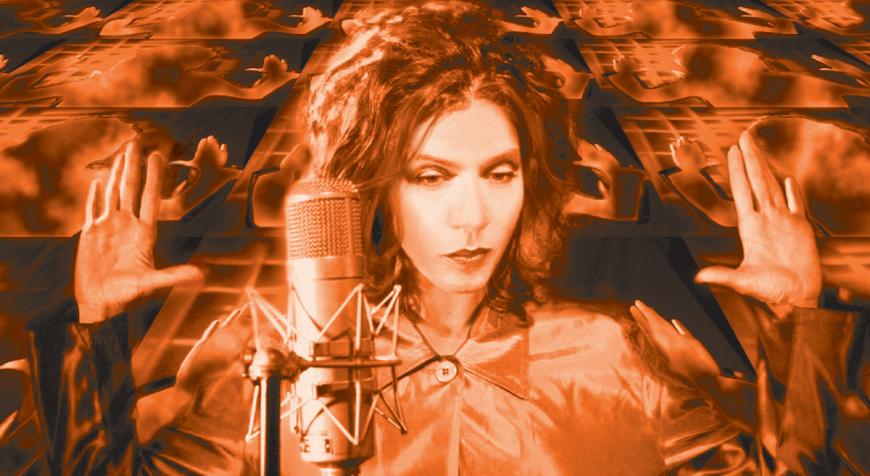
Moving to Los Angeles in 2006, Deyhim, has, over the course of her career, been signed to Sony Classical and continues to record for her own label, Venus Rising. Often singing in Farsi, the musician’s unique sounds can be heard on the Oscar-winning film, Argo, while U2 made use of her composition, “Windfall/Beshno Az Ney,” as part of its 360 tour. She has also performed with international orchestras such as the Polish Radio Orchestra and received commissions as a composer from organizations such as Bang on a Can.
Deyhim’s longtime work with acclaimed visual artist Shirin Neshat began with Turbulent, in which she starred and also composed the music, the installation snagging the Venice Biennale Golden Lion First International Prize in 1999. Indeed, in addition to Deyhim having collaborated with Neshat eight times, she has worked with a number of visual artists, including Lita Albuquerque, while her mixed-media production, The House is Black, inspired by the late Iranian poet Forough Farrokhzad, has been performed at CAP UCLA’s Royce Hall, the Wallis Annenberg Center for the Arts, and the Metropolitan Museum in New York.
Deyhim’s 2019 recording, La Belle et La Bête (Beauty and the beast), reflects her love of jazz and — despite the pandemic — she continues to juggle a number of projects. I caught up with the multi-hyphenate by phone, our conversation ranging from her creative process and collaborations to her goals as a maker of music.
How have you been faring during COVID-19?
I actually was extremely busy because I had to record a whole album. It was a precarious situation, but it was also a way to appreciate doing very, very small and simple things and really look at all the artifice on a daily basis [that] we deal with. I’ve never been a socializer [so this was] a sort of meditative, contemplative, profound experience.
I found it to be profound because humanity, regardless of who we are and what we are, when we are facing death, we become much more aware. For Tibetans, it’s how you live. If every day was your last day of life, how fully, how generously, how kindly, how would you live it? It’s always been part of my psyche, but during COVID, seeing so many other people suffering and all the people who left us [including] some of our friends, I hope humanity doesn’t have to go through it again. And how ready are we for the next round of things?
Can you talk about La Belle et La Bête, which features covers of songs such as Leonard Cohen’s “Hallelujah” and Dylan’s “All I Really Want to Do,” and your choice of musicians, including pianists John Beasley and Mitchel Forman?
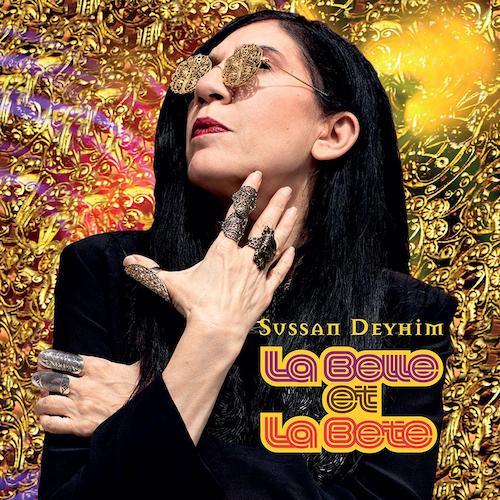
People who do one kind of thing, it’s easier to capture an audience, but having a foot in different worlds has always been my thing. Béjart, dance, music, I always felt the synergistic aspect of these performing art forms. They all bring in a sensitivity you wouldn’t have [by yourself]. If you’re an actor and don’t have phrasing — the dramatic aspect of what you’re doing — you’re not as captivating. I find it extremely important that performers are multidimensional.
A lot of my friends who are very advanced — in politics, activism — they always thought it was an act of snobbism [that] I don’t have a pop album or I [sometimes] don’t sing an actual language. So I decided to do an album of cover songs. Jazz has meant so much to me, because it’s very hard for me not to listen to Miles [Davis], [Charles] Mingus, Chet [Baker]. It’s so contemporary and in a way so anarchistic; it’s Black and African and Indigenous.
Jazz has always had a huge part in my heart, especially after collaborating with Bobby McFerrin, Ornette Coleman. Hanging out with all these amazing musicians, I’ve had one foot in jazz, one foot in new music, hip-hop. I have such reverence in my life toward jazz, I thought it would be great to do it. Mitch is the pianist for the Mahavishnu Orchestra and John Beasley is the music director for Herbie Hancock. I had a concert in Senegal six years ago and John was very kind when I said I wanted to do this and he introduced me to Mitch.
You’ve also been working on a new album, Songs from Ur, a collaboration with German composer Torsten Rasch. Can you talk about the process and recording 150 voices of your own, in Sumerian, no less?
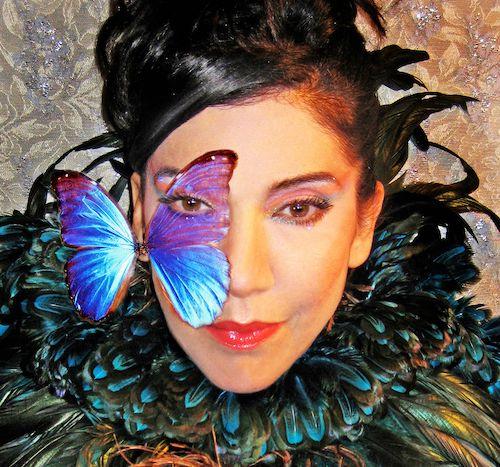
Torsten is an interesting, extremely generous opera composer [who] had a commission from Dresden. His opera, The Other Wife, is a biblical kind of story with interconnections between religions. He wanted me to collaborate with him [so] I would compose and bring in my part. He had a residency with the German Academy in Rome, Villa Massimo, and they had a budget for us to do a live show. The opera got postponed because of COVID, so [we] thought because they had to spend this money, “Should we do a record?”
We collaborated on the few pieces he had composed for me and I did harmonic arrangements of my vocals; that’s where they grow into many, many layers and counterparts, and before you know it, it’s like a choir singing. Half is inspired by his opera and the other half is mine from the past.
Where did you record your parts?
I have a home studio, it’s not like Capitol Records, but it was fantastic to be able to produce. I recorded myself, mixed and arranged the whole thing and would send him the full-on vocal parts. We finished the last piece on the album and we’re finishing the cover. It’s one of three albums I’m going to have released in the next year and a half.
But how on earth were you able to sing in Sumerian?
Seven scholars from Oxford University pronounced the texts for me and sent me the audio.
It’s very rich, and every part of my voice is on this album. I don’t know how many different registers there are, but it’s beautifully dark and I’m very proud of it. It also couldn’t have come together if it weren’t during COVID — to give it this time and attention. It’s not a huge budget and it will be released by Villa Massimo. I don’t usually self-promote, but this one is way out there [and] is totally the high end of new music.
What are your goals as a musician/composer/improviser, how do ritual and culture feed into your music, and do you vocalize every day?
My goal has always been to open up the perspective of craftsmanship. Although I come from academic dance and from studying with well-known opera teachers and respect academic training, I would hate that training to reduce peoples’ possibilities [and] innovation. You wouldn’t have Ornette Coleman and [artist Robert] Rauschenberg. It should fill you up.
I love Mahler and everything he’s written. If I became an opera singer when I was asked to go to school and decide what I wanted to do — when I was thinking about that decision — I thought, “How many more opera singers can you have singing Western classical music?” It’s astounding, yes, but what about Ethiopian, Persian classical music, north Indian music, gamelan? Who is going to bring that?
The study of Indigenous vocal techniques has been my passion. I make that part of my compositions. I don’t come from the West and [that type of] harmonic sensibility. I danced with it for many years and I’ve been wanting to open a window into the absolute marvels of Indigenous techniques on the globe. It’s astounding how many things you can do with the same two vocal cords.
I do vocalize every day. It saves my spirit, it oxygenates, it vibrates. Singing is not just a profession, singing is everyone’s primordial life. Music has its own place. You can’t own it — it’s been the closest special friend to humanity since the beginning of time and I am about to possibly propose a monthly gathering of bringing people together and let them loose and try to help people and oxygenate.
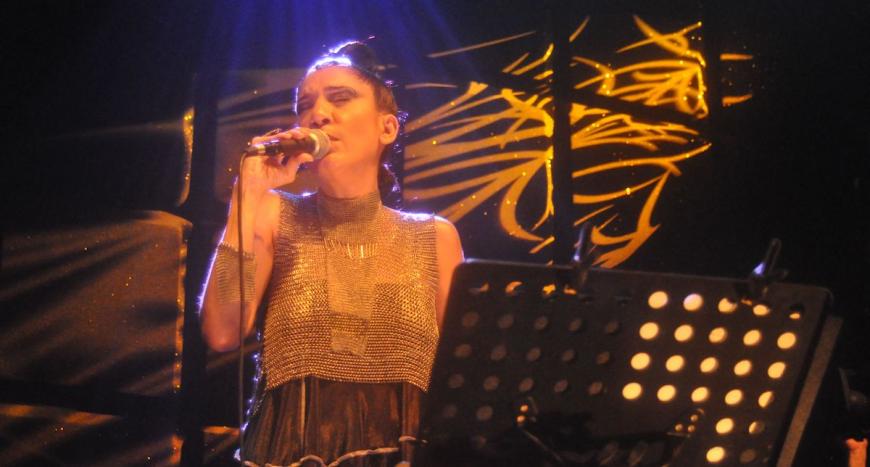
You always have numerous projects going at once and you’re about to begin a collaboration with filmmaker Godfrey Reggio — he of the Qatsi trilogy (Koyaanisqatsi Powaqqatsi, and Naqoyqatsi) — and Philip Glass, who scored the films. What can you tell me about this?
It’s in the early stages so I shouldn’t talk too much, but it’s a wonderful, profound, and interesting project. Godfrey said, “I want someone transcendental: We need to get Sussan.” It’s six 10-minute films that will blast the internet, and one of [Steven] Soderbergh’s companies is producing. I’ll collaborate with Philip on the music and I’m also performing as the Mother Muse in one of the films. It’s very minimalistic and I’m going to go in the direction of butoh [dance], because you can’t do realism. Godfrey worked on this for the last 10 years and it’s extremely exciting.
Your activism also runs deep. You’ve been a participant at humanitarian events and benefits, including a performance at the gathering of spiritual leaders at the United Nations General Assembly in 2001 and again in 2009, the latter organized by Pakistani rock musician and activist, Salman Ahmad. In addition, you recorded a track for the 2012 Amnesty International Chimes of Freedom: The Songs of Bob Dylan album. What does it mean to you that you can’t go home to Iran again?
It pisses me off on the most profound level that I’m deprived of a country that I absolutely adored — all the friends, the architecture, nature, food, dance culture, musical culture — all of that has been taken away from us. I don’t know when we can turn the page, but as soon as that place opens up, I, like many, many other people, will be on the 6 a.m. flight home.


